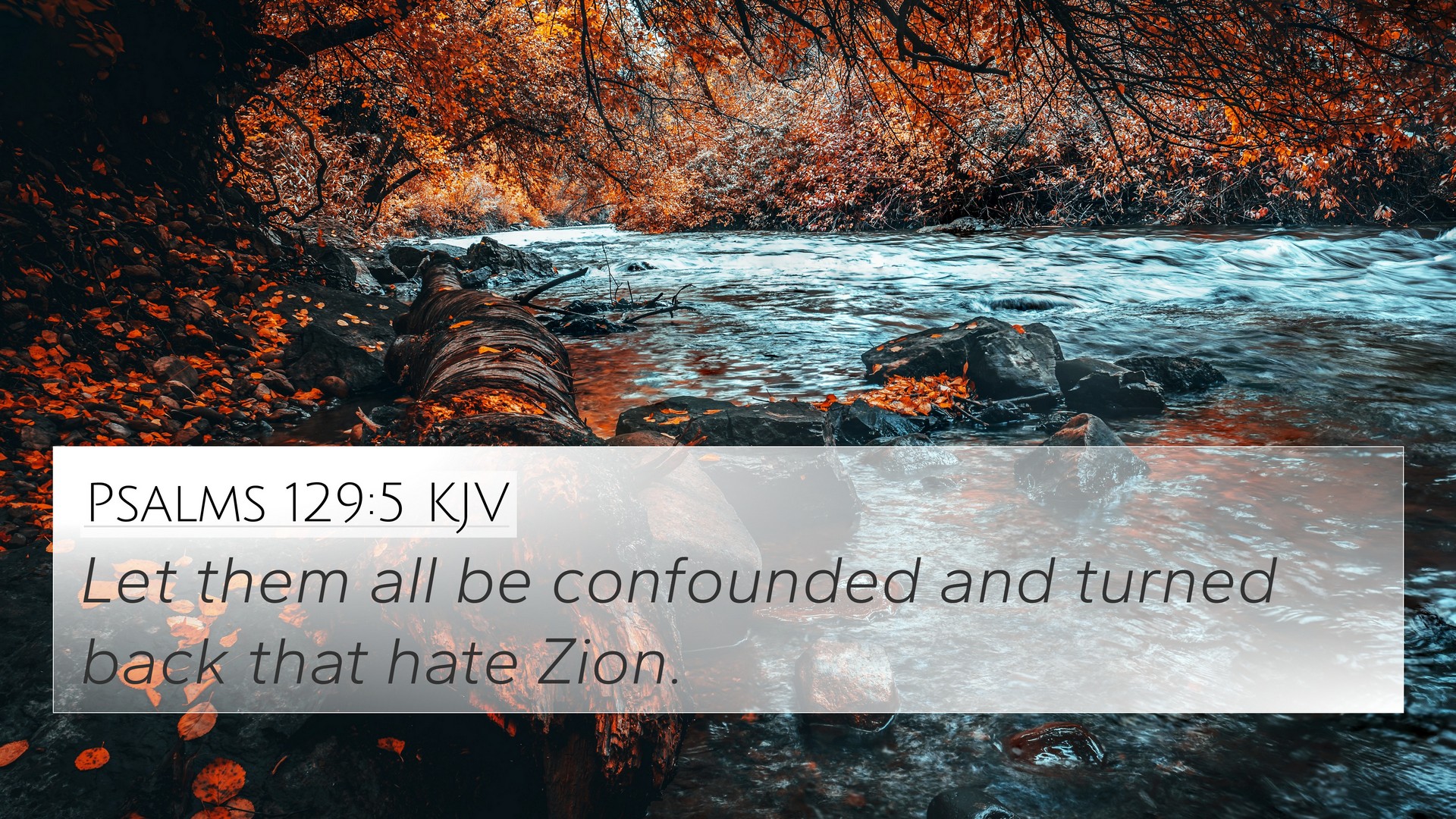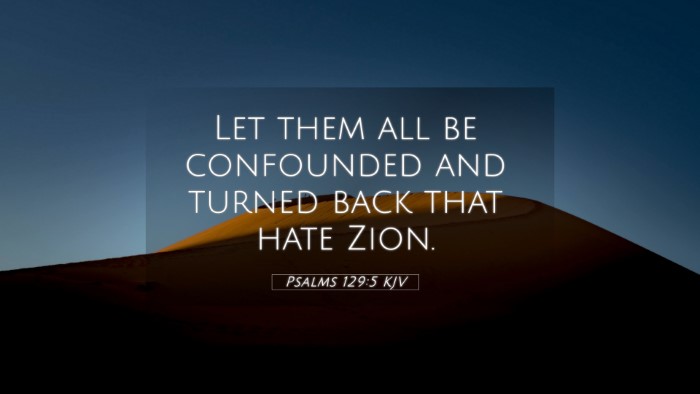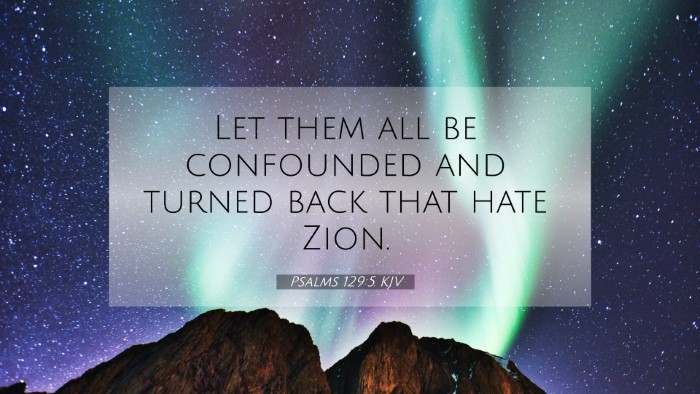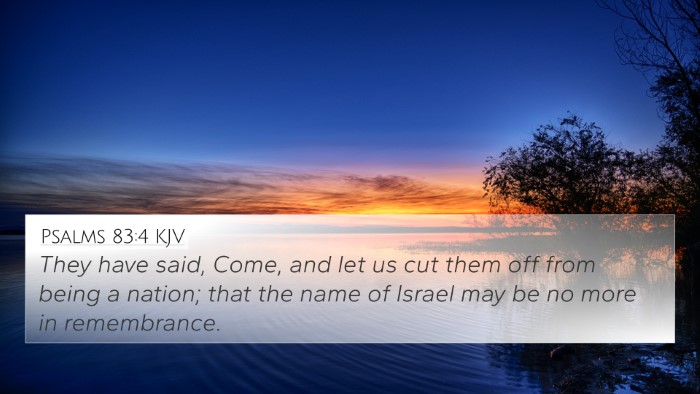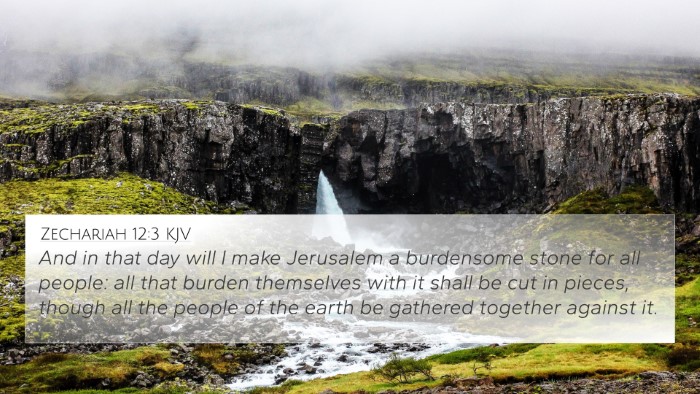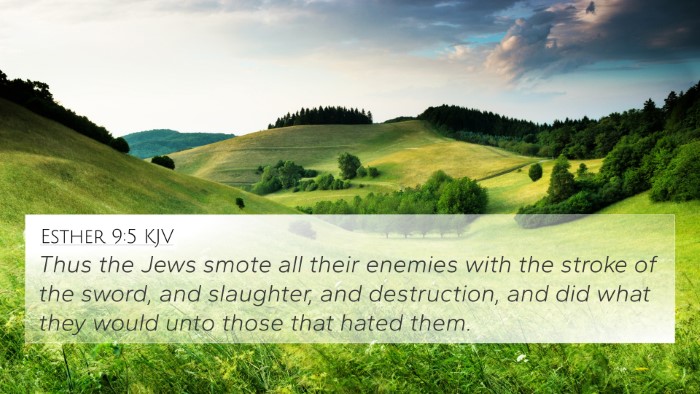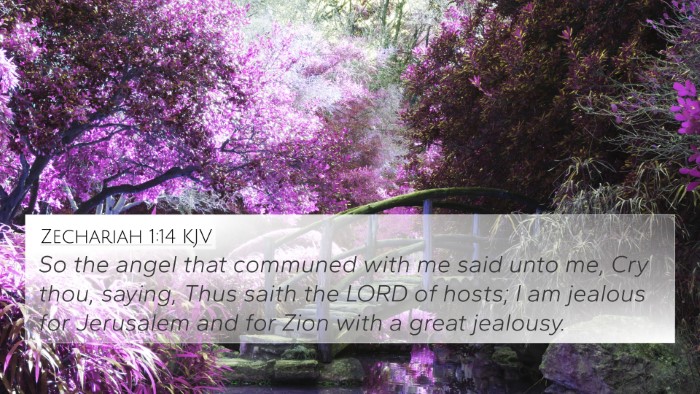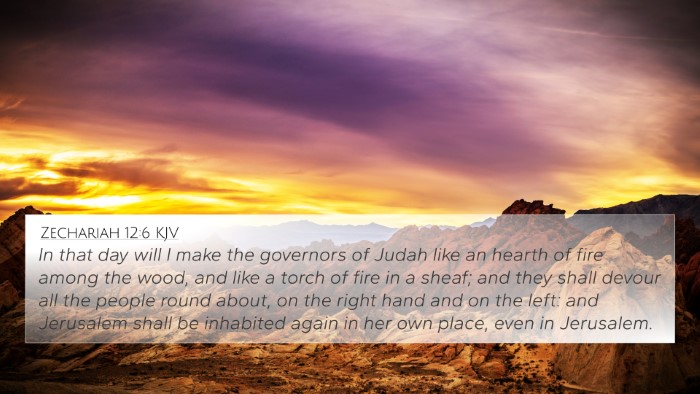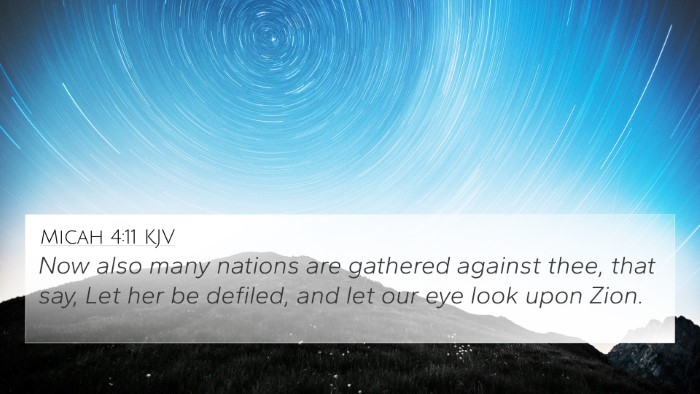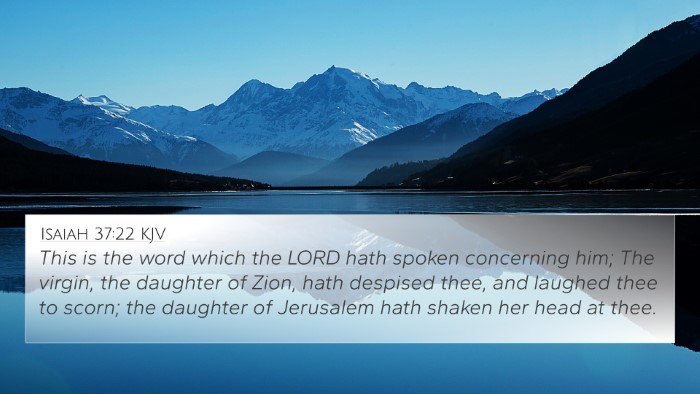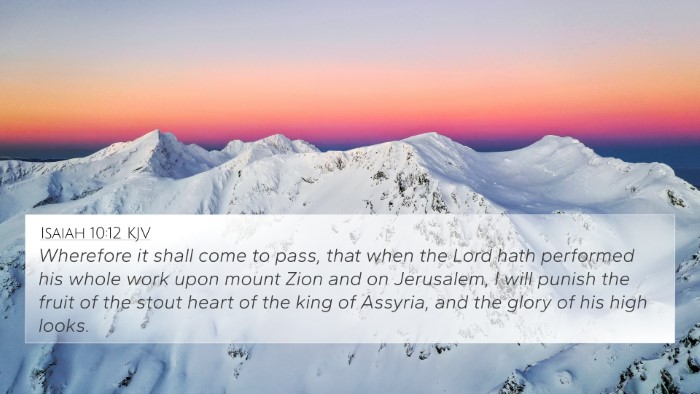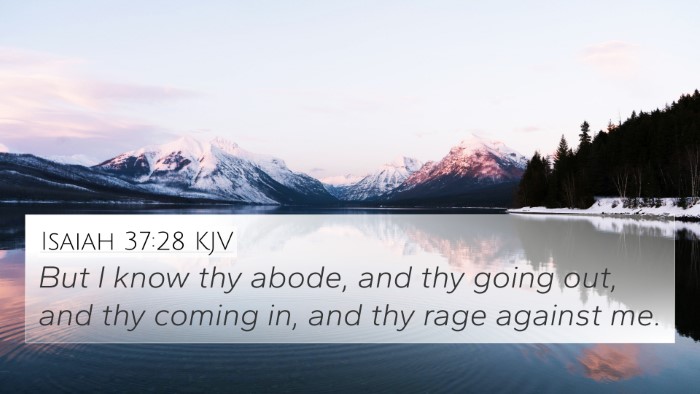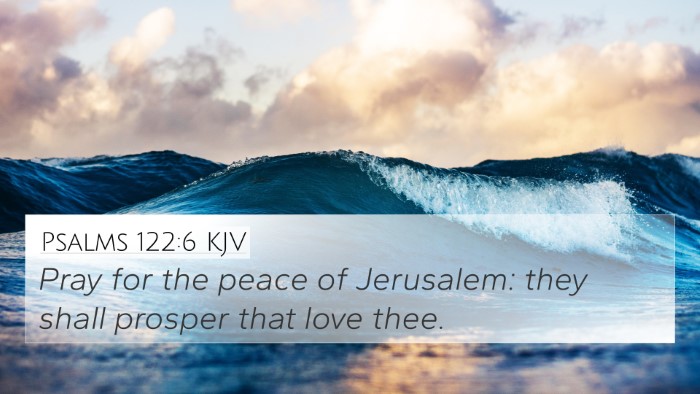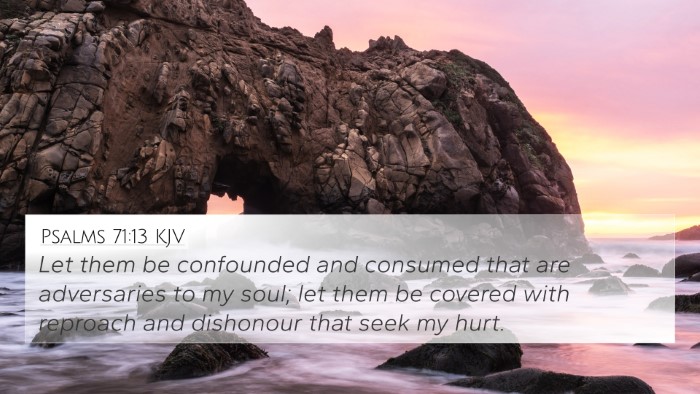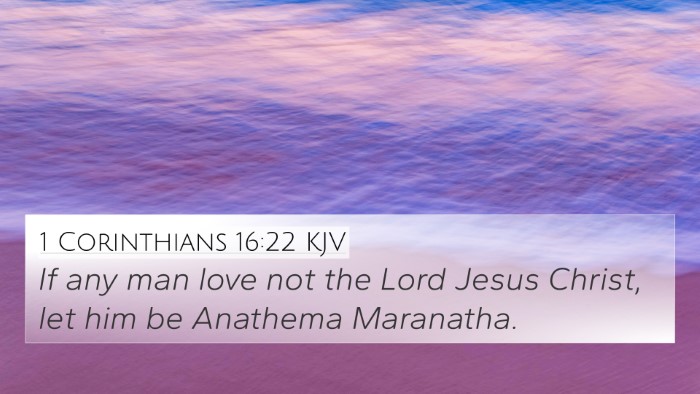Psalms 129:5 - Summary and Interpretation
Bible Verse: "Let all who hate Zion be put to shame and turned backward." - Psalms 129:5
Verse Meaning Overview
This verse expresses a plea for the downfall of those who oppose Zion, symbolizing the people of God, and is indicative of a broader theme of divine justice for the faithful against their adversaries. The context reveals the psalmist's stark contrast between the blessed state of God's people and the terrible fate awaiting their enemies.
Commentary Insights
-
Matthew Henry:
In his commentary, Henry notes that the psalmist is invoking God's judgment upon those who oppose Zion. He emphasizes the inevitability of divine justice prevailing over the enemies of God's people. Henry highlights that their shame will be evident, resulting in them being "turned backward," signifying defeat and humiliation.
-
Adam Clarke:
Clarke interprets the verse as a call to God for retribution against those who are disdainful of Zion. He discusses the historical context where Zion represents the spiritual state of Israel. Clarke underscores the significance of calling out for God's intervention, showcasing the communal sense of justice the psalmist holds for his nation.
-
Albert Barnes:
Barnes elaborates on the notion of 'hatred' towards Zion, indicating that it reflects a deeper discontent with God and His divine plans. He connects the leader's cry for shame upon the wicked to the overarching biblical theme of retribution, forming a strong connection between the faithful's plight and divine protection.
Key Themes
The following themes emerge clearly from Psalms 129:5:
- Divine Retribution: The expectation of God’s justice upon those who oppose His people.
- Contrast of Outcomes: The faithful versus those who reject and hate God’s covenant community.
- Community Plea: This is a collective call for judgment, aligning with the corporate identity of Israel.
Bible Cross References
To understand the connections of Psalms 129:5, consider the following cross-references:
- Isaiah 66:5: "Hear the word of the LORD, you who tremble at his word: Your brothers who hate you and exclude you because of my name have said, 'Let the LORD be glorified, that we may see your joy!' Yet they will be put to shame."
- Zechariah 12:9: "On that day I will set out to destroy all the nations that attack Jerusalem."
- Psalm 25:2: "I trust in you; do not let me be put to shame, nor let my enemies triumph over me."
- Romans 12:20: "On the contrary: 'If your enemy is hungry, feed him; if he is thirsty, give him something to drink.'"
- Psalm 37:20: "But the wicked will perish: The Lord's enemies are like the flowers of the field, they will be consumed; they will go up in smoke."
- Revelation 20:9: "They marched across the breadth of the earth and surrounded the camp of God's people, the city he loves. But fire came down from heaven and devoured them."
- Philippians 1:28: "Without being frightened in any way by those who oppose you. This is a sign to them that they will be destroyed, but that you will be saved—and that by God."
Understanding Through Cross-Referencing
Thematic Bible verse connections, such as those found in the cross-references above, reveal a consistent biblical narrative regarding the fate of adversaries against God’s people. Understanding these links enhances our comprehension of God's justice and the assurance of salvation for the faithful.
Tools for Cross-Referencing
For an in-depth study of Bible verse comparisons and connections, consider utilizing the following tools:
- Bible concordance to identify key themes and related content.
- Bible cross-reference guide for finding scripture parallels.
- Cross-reference Bible study methods for systematic exploration.
- Comprehensive Bible cross-reference materials to deepen scriptural understanding.
Conclusion
Psalms 129:5 presents both a plea for divine justice and a powerful reminder of the fate awaiting those who revile God's people. By employing cross-referencing techniques, readers can uncover intricate links between this verse and the broader narrative of Scripture, enriching their understanding of divine justice and the importance of communal prayer against oppression.
